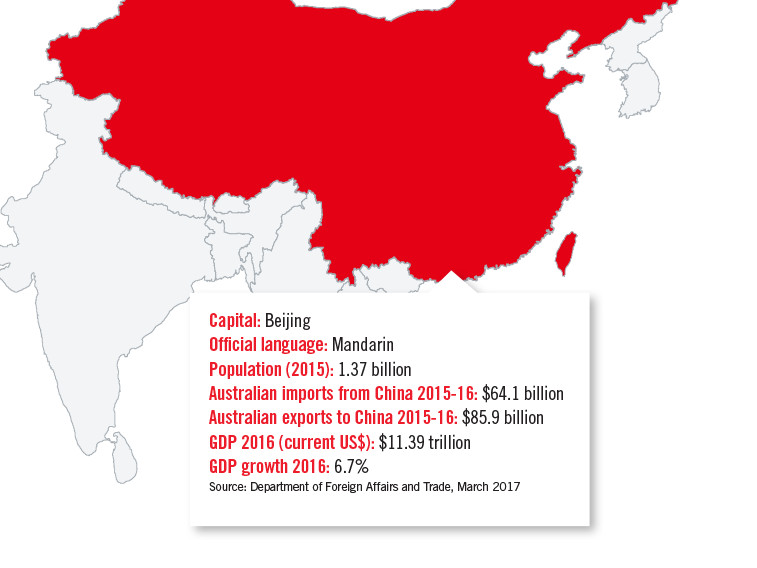Change is a constant in our global environment, but that's all the more reason to keep moving forward on your terms.


Article
As Australia’s most important trading partner, China is one country your business probably shouldn’t ignore. We share tips to help you get started.

China represents a singular opportunity for Australian businesses. Not only is it our country’s largest exports market (surpassing Japan in 2009), it is also our largest source of imports. One year on from the signing of the China-Australia Free Trade Agreement (ChAFTA), it’s well worth taking a closer look at our biggest trading partner.
With a population of around 1.37 billion, China boasts about 56 times more people than Australia. Little wonder then that this country represents our largest exports market.
Exactly what are we good at selling to our sizeable neighbour? As China’s middle class continues to expand, there is increasing demand for a higher-protein diet, better education and overseas travel, all goods and services in which Australia excels. At the same time our iron ore, used in the production of steel, is in huge demand, continuing to support China’s manufacturing and construction sectors.
That’s because, while China may be the world’s largest producer of iron ore, it still needs to import vast amounts of the mineral to meet its needs.[1] In contrast, the country is reasonably self-sufficient in coal.[2] Both exports are susceptible to the vagaries of the Chinese market however – while there has been a recent surge in prices for iron ore and coal, there is considerable concern this will be short lived.
Our trading relationship is far from one-way: China is also Australia’s largest source of imports.
We import about three quarters the amount we export to China, with telecommunications and computers our number one Chinese import.
Doing business in China
By Laura Mattiazzi, Head of Asia Business Development, NAB Business & Private Bank
[1] Lichentenstein, J., “How does China drive the mining and metals business?”, 26 June 2013, Yale Insights, Yale School of Management
[2] Ibid
© National Australia Bank Limited. ABN 12 004 044 937 AFSL and Australian Credit Licence 230686.